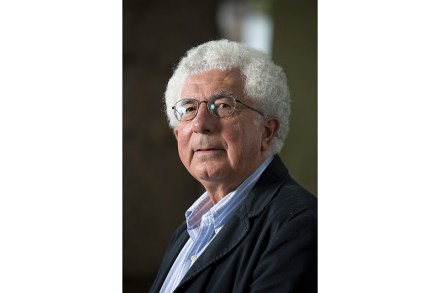Should family history, however painful, be memorialised forever?
Be under no illusions: this is not a food memoir. Chopping Onions on My Heart is a linguistic exploration of belonging; a history of the Jewish community in Iraq; and an urgent endeavour to save an endangered language. Above all, it is a reckoning with generational trauma. The subjects of Samantha Ellis’s previous books include the life of Anne Brontë, heroines of classic literature, feminism and romantic comedy. She is the daughter of Iraqi Jewish refugees, and the language she grew up around, the language of her people and culture, is dying. Judeo-Iraqi Arabic ‘came out of the collisions of Hebrew-speaking Jews and Aramaic-speaking Babylonians, and then absorbed linguistic influences



